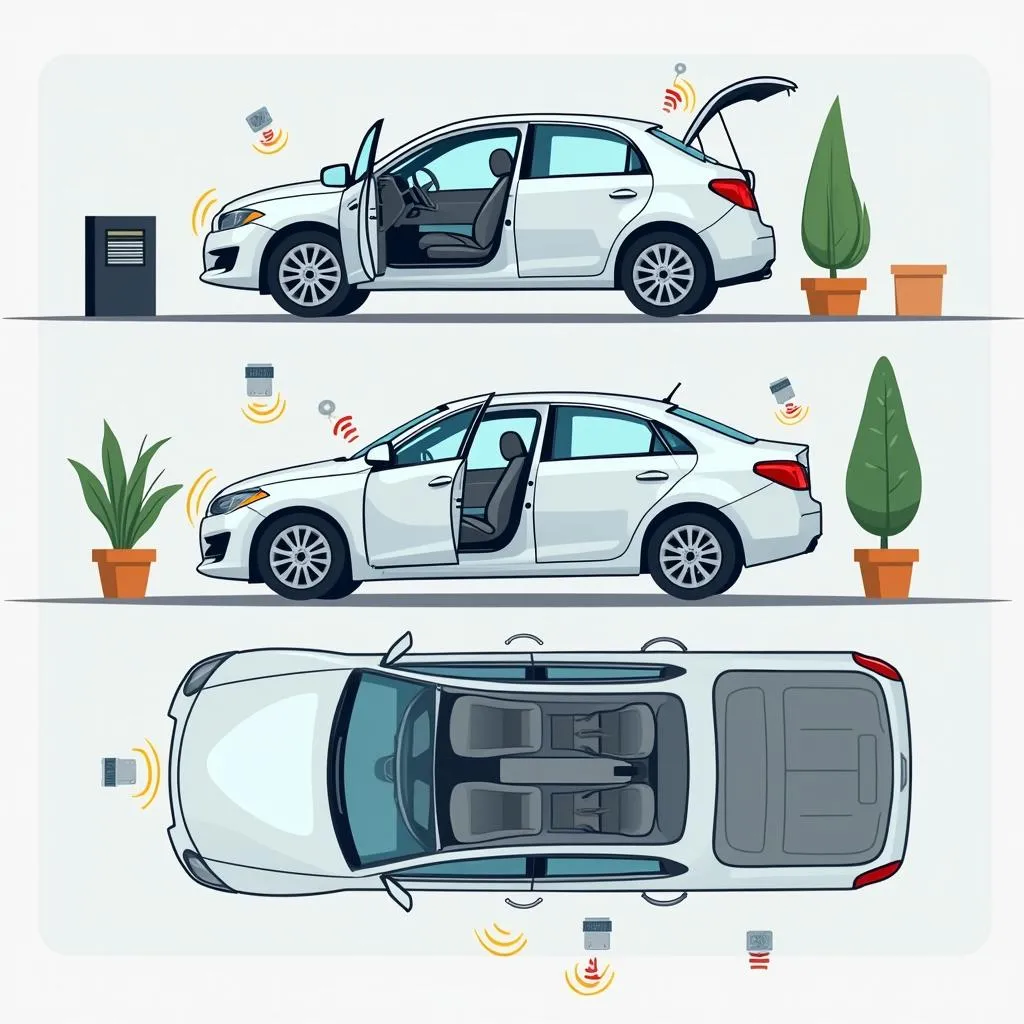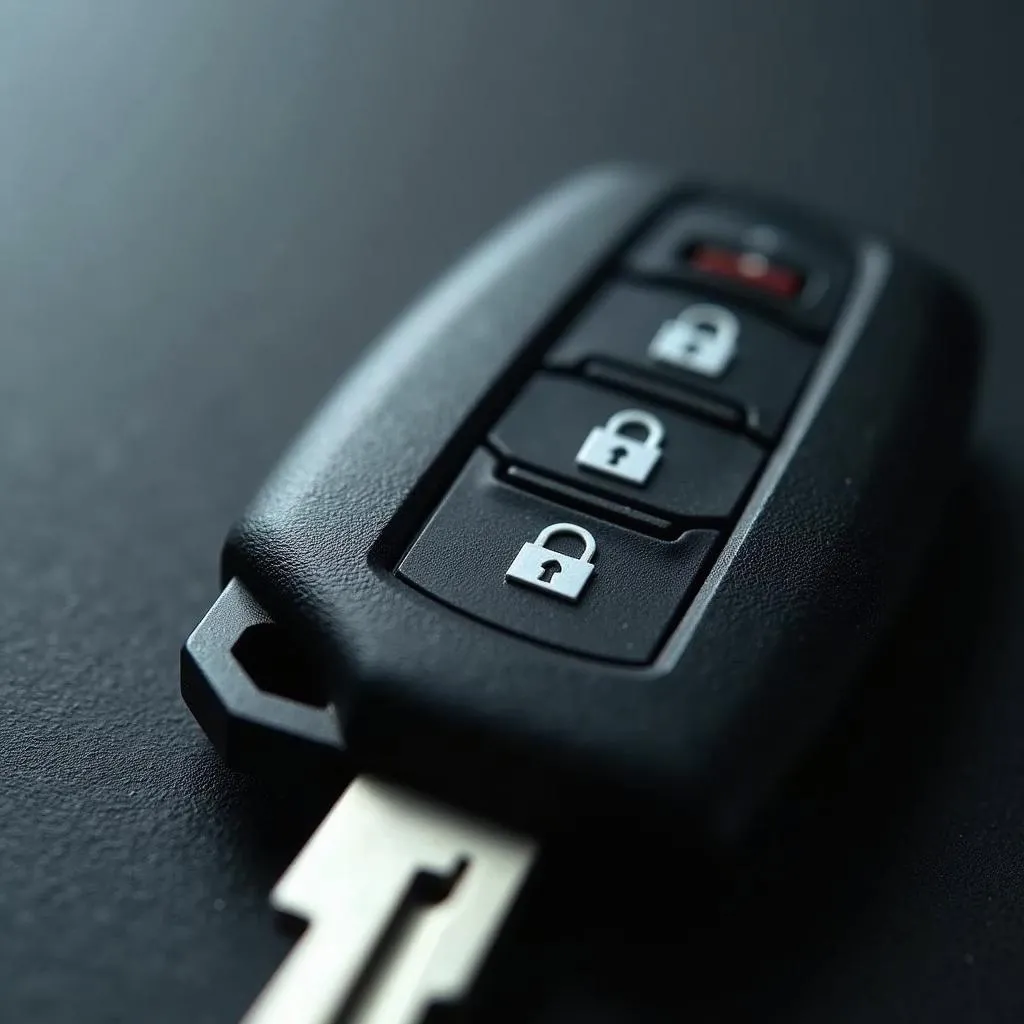In today’s world, car theft is an unfortunate reality. That’s why most vehicles come equipped with anti-theft devices designed to deter thieves and protect your valuable asset. But have you ever wondered how these systems actually work? Understanding the mechanics behind these security measures can help you appreciate their importance and ensure they’re always in top condition.
Understanding the Basics: How Car Anti-theft Systems Work
Car anti-theft devices have evolved significantly over the years, transitioning from simple mechanical deterrents to sophisticated electronic systems. Most modern vehicles employ a combination of technologies to provide comprehensive protection. Here’s a breakdown of the most common components:
1. Immobilizers: The Electronic Gatekeepers
At the heart of many modern anti-theft systems lies the immobilizer. This clever device prevents the engine from starting without the presence of the correct key. It works by disabling one or more vital engine functions, such as the fuel pump or ignition system, making it impossible to hotwire the car.
- How they work: Immobilizers use a small transponder chip embedded in the car key. When you insert your key into the ignition or bring it near the start button, the system’s antenna sends out a radio frequency signal. The transponder chip receives this signal and sends back a unique code. If the code matches, the immobilizer unlocks, allowing the engine to start.
2. Alarm Systems: Your Vehicle’s Watchdog
While immobilizers work behind the scenes, alarm systems provide a more audible layer of protection. They are designed to trigger a loud siren or horn if someone tries to break into or tamper with your car.
- Sensors and triggers: Car alarms use various sensors strategically placed throughout the vehicle. These sensors can detect:
- Impacts on doors, the hood, or the trunk
- Broken windows
- Movement within the vehicle
- Changes in the vehicle’s inclination (indicating towing)
 Car alarm system with sensors
Car alarm system with sensors
3. GPS Tracking Systems: Tracking Down Stolen Vehicles
GPS tracking systems have become increasingly popular in recent years. These systems use satellite technology to pinpoint your car’s location in real-time, making it easier for law enforcement to recover a stolen vehicle.
- Beyond recovery: Some advanced GPS tracking systems offer additional features, such as:
- Geofencing: Alerts you if your car leaves a designated area.
- Remote immobilization: Allows you to remotely disable the engine if your car is stolen.
- Driving history: Provides records of your car’s movements, which can be useful for insurance purposes.
Common Issues and Troubleshooting
While anti-theft devices are designed for reliability, issues can occasionally arise. Here are some common problems and potential solutions:
Problem: Car alarm keeps going off randomly.
Possible causes: Faulty door sensor, low battery voltage, sensitive shock sensor.
Troubleshooting tips: Check the battery voltage, inspect door sensors for damage or debris, adjust the shock sensor’s sensitivity.
Problem: Engine won’t start, and the immobilizer light is flashing.
Possible causes: Key battery is dead, transponder chip in the key is damaged, issue with the immobilizer system.
Troubleshooting tips: Try a spare key, replace the key battery, consult a qualified mechanic or an automotive locksmith.
 Car key with immobilizer chip
Car key with immobilizer chip
Frequently Asked Questions About Car Anti-theft Devices
Here are some common questions people have about car anti-theft devices:
Q: Can I install an aftermarket anti-theft device on my car?
A: Yes, numerous aftermarket anti-theft devices are available, including alarm systems, immobilizers, and GPS trackers. It’s essential to choose a reputable brand and ensure professional installation for optimal performance.
Q: How can I enhance my car’s security beyond the factory-installed system?
A: Consider adding layers of protection, such as steering wheel locks, brake pedal locks, and kill switches. Parking in well-lit areas, using a garage when possible, and being mindful of your surroundings can also deter potential thieves.
Q: What should I do if my car alarm goes off accidentally?
A: Don’t panic! First, try to disable the alarm using your key fob. If that doesn’t work, check your owner’s manual for specific instructions on how to reset the system.
Q: How much does it cost to fix an anti-theft system?
A: The cost of anti-theft system repairs can vary depending on the issue, make and model of the vehicle, and labor costs in your area. It’s always a good idea to obtain multiple quotes from reputable mechanics or dealerships. For more insights on the cost of automotive security, you can check out resources like How Much is a Catalytic Converter Anti-Theft Device?.
Cardiagtech: Your Partner in Automotive Diagnostics and Repair
Understanding how your car’s anti-theft system works is crucial for maintaining your vehicle’s security. Remember, technology is constantly evolving, and staying informed about the latest advancements can provide an extra layer of protection.
If you’re experiencing issues with your car’s anti-theft system or have questions about automotive diagnostics and repair, don’t hesitate to contact Cardiagtech. Our team of experts can provide specialized guidance and support. We offer a wide range of diagnostic tools and services, including information on specific car models, such as whether this BMW model has an anti-theft locking device. We can help you ensure your vehicle is protected with the latest technology.


